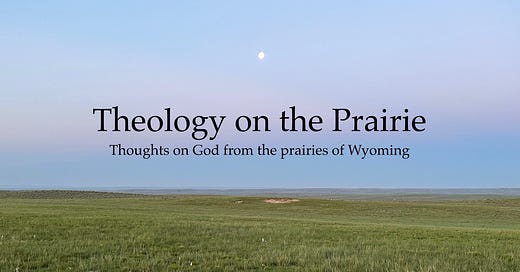Setting the scene: Israel was no longer one nation, but two: Israel to the north, and Judah to the south. Jeremiah was a priest and prophet who began his ministry during the reign of King Josiah, a descendant from the legitimate kingly line of David and the last “good king” of Judah. Josiah died young in a battle against Egypt and was succeeded by four wicked kings who each ruled for less than 11 months, with one named Jeconiah being the last king of Judah ever. Jeremiah spoke God’s words concerning the sins of both Israel and Judah, which included rampant idolatry, corrupt political and religious leadership, social injustice, and an overall denial of God.1 He told the people that because they had broken God’s covenant, they would face judgment and be taken captive by the nation of Babylon for 70 years.
Jeremiah was devastated by the condition of the Jewish nations, but he faithfully prophesied as God told him to. He proclaimed that their captors would be cruel and merciless, and their response to the onslaught would be anguish and terror.2
But before the prophet began his ministry, God gave him a promise:
Today I appoint you to stand up
against nations and kingdoms.
Some you must uproot and tear down, destroy and overthrow.
Others you must build up and plant.
Jeremiah 1:10, NLT
Jeremiah would deliver a message of judgment for Israel and Judah, but he would also give a message of future hope, of building up and planting. We see this in chapter 23:5-6,
Behold, the days are coming, declares the Lord, when I will raise up for David a righteous Branch, and he shall reign as king and deal wisely, and shall execute justice and righteousness in the land. 6 In his days Judah will be saved, and Israel will dwell securely. And this is the name by which he will be called: ‘The LORD is our righteousness [Jehovah-Tsidkenu].’
ESV
From the family tree of David, a righteous branch would sprout - a King that would stand in stark contrast against the evil kings and nations. Rather than promoting or turning a blind eye to wickedness, he would execute justice. His name would be, “The LORD is our righteousness,” a king who would supplement his own righteousness for the unrighteousness of his people.
We know this branch, Jehovah-Tsidkenu, by the name of Jesus. When Jesus came onto the scene in AD 29, the Jewish people were looking for a conquering King to deliver them from the oppression of the Roman empire. But Jesus came as a humble servant-king. Instead of bringing justice by the edge of the sword, Jesus lifted up the weak, healed the sick, restored the broken, and proclaimed forgiveness for sinners.
We cannot be righteous by our own power. In fact, Romans 3:10 says, “There is no one righteous, not even one.” We are all sinners falling short of the glory of God3 on a daily basis. But God gave Jeremiah a vision for us: someone to be righteousness for us.
It is because of him [God] that you are in Christ Jesus, who has become for us wisdom from God—that is, our righteousness, holiness and redemption.
1 Corinthians 1:30, NIV (emphasis added)
What is more, I consider everything a loss because of the surpassing worth of knowing Christ Jesus my Lord, for whose sake I have lost all things. I consider them garbage, that I may gain Christ and be found in him, not having a righteousness of my own that comes from the law, but that which is through faith in Christ—the righteousness that comes from God on the basis of faith.
Philippians 3:8-9, NIV (emphasis added)
Jesus makes His righteousness ours when we put our faith in Him for salvation - when we believe in His death and resurrection and answer His call to “Follow Me.”
Easter is six days away. It’s a time to reflect on the righteous King who suffered and died to pay the debt we could not, to break our bondage to sin, to give us life, to be righteous on our behalf. It’s a time to accept Jesus Christ’s righteousness as your own if you are like Judah and Israel, turned away from God and living however you desire.
What a beautiful name. King, Savior, our Righteousness: Jesus, Jehovah-Tsidkenu.




